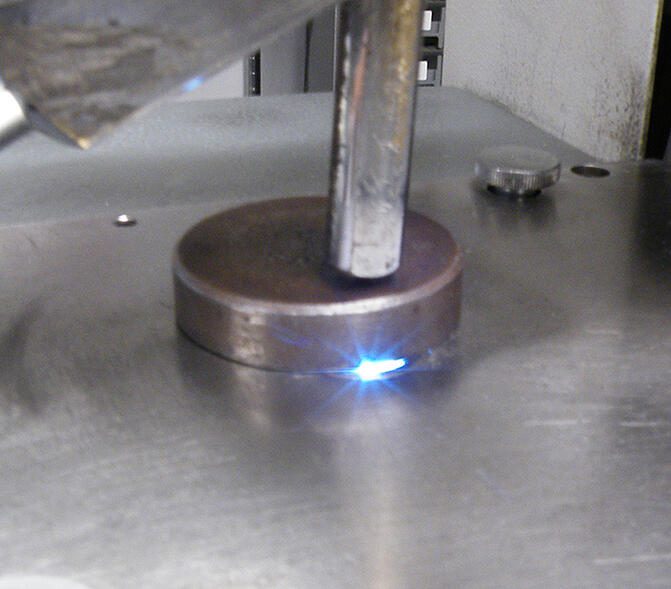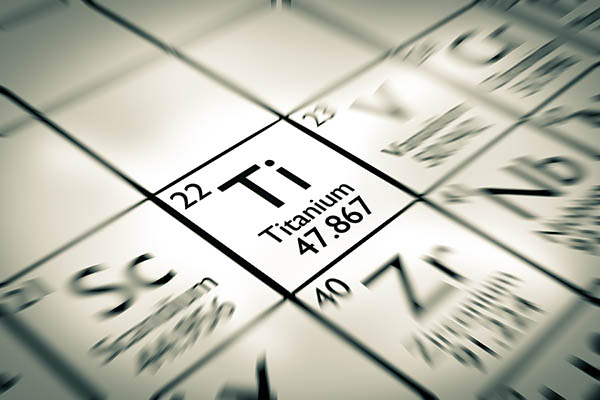OES ANALYSIS SERVICES
OES analysis uses an Optical Emission Spectrometer to make a quantitative measurement of the optical emission from excited atoms to determine analyte concentration. A solid sample is atomized by an arc-spark discharge which provides sufficient energy to promote the electrons of atoms into high energy levels.
The intensity of the light, which is proportional to the concentration of the element in the sample, is recalculated internally. The recalculation uses a set of calibration curves and is shown directly as a percent concentration of the element.
How OES Analysis Works
An optical emission spectrometer (OES) is a powerful analytical tool that can be used to characterize a wide range of materials, including metals, alloys and semiconductors.
OES is particularly well suited to the analysis of composite materials. It can provide information on both the elemental composition and the microstructure of the material. In composite material testing, OES can be used to identify the presence of impurities or defects, and to determine the distribution of elements within the material. This information is essential for quality control and for understanding the behaviour of the material under different conditions.
OES is a non-destructive technique that is quick and easy to use, making it an important tool for composite material testing. All analyses are NIST traceable through the use of certified reference materials. Typically element concentrations are reported to 0.01 wt%, however in some cases trace elements can be analyzed to ppm levels.
OES analysis (Optical Emission Spectroscopy) uses quantitative measurement of the optical emission from excited atoms to determine analyte concentration. A solid sample is atomized by an arc-spark discharge which provides sufficient energy to promote the electrons of atoms into high energy levels.
The intensity of the light, which is proportional to the concentration of the element in the sample, is recalculated internally from a stored set of calibration curves and is shown directly as percent concentration of the element.



OES ANALYSIS- MATERIALS TESTED
- ALUMINUM
- IRON
- NICKEL
- COBALT
- COPPER
- TITANIUM ALLOYS
Alloy Chemistry
Antimony Analysis (ICP)
Cadmium Analysis (ICP)
Carbon, Sulfur, Hydrogen, Oxygen & Nitrogen
Contamination ID
Contaminant/ Corrodent Analysis
Filler/Additive Analysis
FTIR
Halogen Analysis (IC)
Heavy Metals Analysis
Hex Chrome (UV-VIS)
ICP-AES Analysis
ICP-MS Analysis
Impurities Analysis
Ion Chromatography
Material Certification
Metal Purity
OES Analysis
On-site PMI
PMI Testing (Positive Material ID)
Particle Size Analysis
Percent Crystallinity
pH
Polymer Testing
Powder Diffraction
Powdered Metal Analysis
Precious Metal Assay
Quantitative Analysis
Resistivity (ASTM D1125)
SEM-EDS
Semi-Quantitative Analysis
Trace Element Analysis
Unknown Alloy Identification
Unknown Material Identification
XRD Analysis
XRF Analysis
OES analysis is performed quickly, easily, and is non-destructive to the material being tested. OES testing can be performed at IMR Test Lab facilities or onsite. OES Analysis provides accurate results.
OES analysis is typically performed in a few hours, with results generated immediately upon completion of the test.
OES analysis is a relatively inexpensive test option for the compositional analysis of materials. Contact us to find your nearest facility or request a quote
STANDARD TEST METHODS
- ASTM E 415 – Low Alloy and Carbon Steels
- ASTM E 1251 – Aluminum Alloys
- ASTM A 751 – 400 Series Stainless Steels
- ASTM E 1086 – 300 Series Stainless Steels
- ASTM E 1999 - Cast Irons (PTL)
RELEVANT ACCREDITATIONS
Click here for a complete list of accreditations and certifications for all IMR Test Labs locations.


